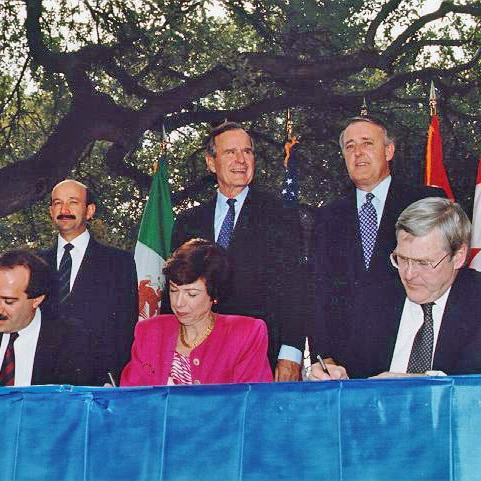
Canada is formally demanding, in talks on a new NAFTA agreement, that any such pact force the U.S. to eliminate so-called right-to-work laws.
During the 2016 U.S. campaign, GOP presidential nominee Donald Trump labeled NAFTA “the worst trade pact ever signed” and vowed to dump it. That promise helped him gain a 50-50 split among unionists and their families in key Great Lakes industrial states. By narrowly carrying Ohio, Pennsylvania, Michigan and Wisconsin, Trump wound up in the White House.
But once there, he decided to renegotiate, not dump, NAFTA, with what he says is the objective to help U.S. workers. The current NAFTA hasn’t. U.S. unions say Trump has adopted only a few pro-worker NAFTA negotiating goals, out of a 47-page detailed list presented during pre-talks hearings.
Instead of Trump, Canadian negotiators have begun pushing hard to eliminate U.S. based right to work laws which have served to deteriorate wage rates and living standards for workers in the United States. This has in turn harmed workers in Canada as well, along with those in the free to bargain states, where employers have used the existence of lower right to work labor standards to drive down wages and benefits for working families.
Related News
- Regional Training Seminars coming to St. Paul, Baltimore in 2026
- SMART leaders train to bargain better contracts in Atlanta
- Chicago-area SMART members win big with transit funding bill
- Transit Funding Boost Proposed by SMART-TD Backed Bill
- California SMART-TD Brother Killed on the Job
- Union Mourns the Loss of Brother Charles Harrison
- FRA Issues Grade-Crossing Safety Advisory
- Amtrak To Give SMART-TD Members Holiday Bonuses
- Federal judge orders release of Kilmar Abrego Garcia from immigration detention — General President Coleman responds
- SEPTA Strike Avoided: Strong Agreement Secured